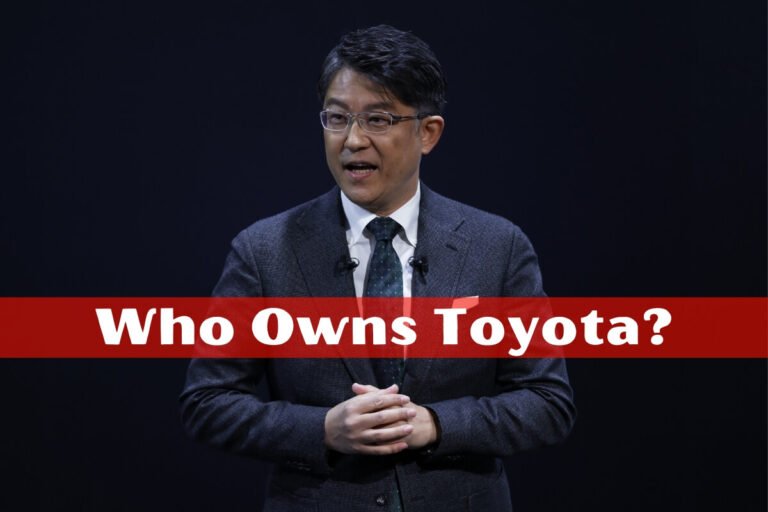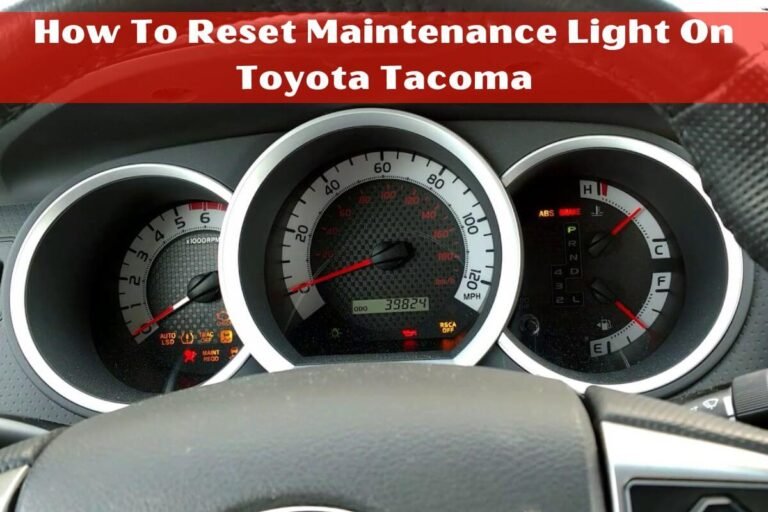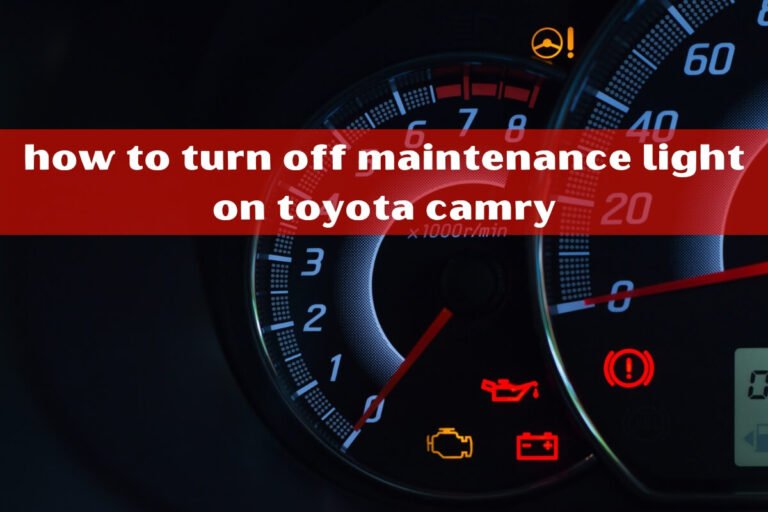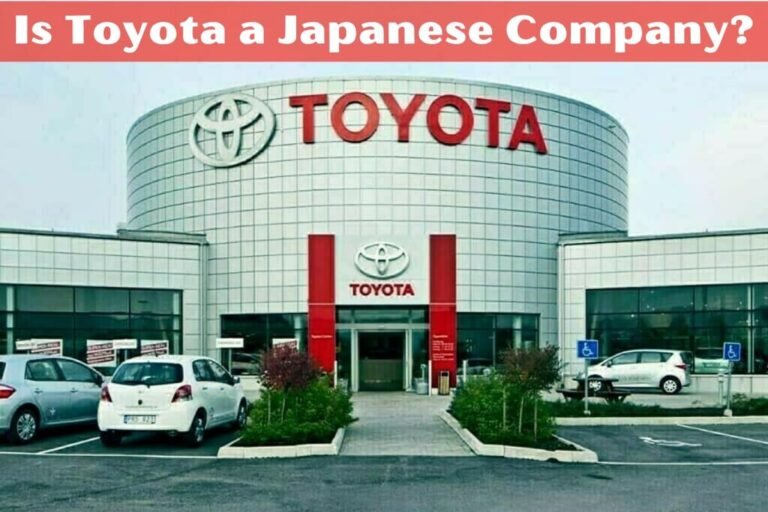Is Lexus Made by Toyota? Unveiling the Truth

For decades, Toyota has been renowned for producing reliable and practical vehicles that cater to the mass market. However, in the late 1980s, the Japanese automaker set its sights on a new and ambitious goal: to create a luxury vehicle division that could compete with the world’s most prestigious brands. This bold endeavor led to the birth of Lexus, a brand that has since become synonymous with opulence, performance, and unwavering attention to detail.
But is Lexus truly made by Toyota, or is it a separate entity altogether? The answer, in bold, is yes, Lexus is owned and operated by Toyota Motor Corporation, but it functions as an independent luxury brand with its own dedicated resources and processes.
In this today article, we’ll delve into the origins of Lexus, exploring its relationship with Toyota and examining how the two brands have forged distinct identities. We’ll uncover the secrets behind Lexus’ manufacturing processes, design philosophies, and commitment to delivering exceptional vehicles that combine Toyota’s engineering prowess with elevated levels of luxury and craftsmanship.
Additionally, we’ll address common questions and misconceptions surrounding the Lexus-Toyota connection, ensuring you have a clear understanding of this unique automotive partnership.
The Origins of Lexus and Its Relationship with Toyota
The story of Lexus begins in 1983, when Toyota’s chairman, Eiji Toyoda, challenged the company to create “a car that is better than the best in the world.” This ambitious goal was a direct response to the growing dominance of European luxury brands like Mercedes-Benz and BMW in the global market. Toyota, known for its mass-market vehicles, recognized the need to establish a dedicated luxury division to compete on a global scale.
To spearhead this endeavor, Toyota assembled a top-secret team called “Circle F,” consisting of over 4,000 engineers, designers, and automotive experts. Their mission was clear: to develop a flagship luxury sedan that would not only match but surpass the standards set by its European rivals. After years of meticulous planning and engineering, the Lexus LS 400 was born in 1989, marking the official launch of the Lexus brand.
From the outset, Lexus was envisioned as a separate entity from Toyota, with its own distinct branding, manufacturing facilities, and vehicle lineup. While the two companies shared some fundamental engineering principles and resources, Lexus was given the freedom to forge its own path and establish a unique identity in the luxury automotive market.
How Lexus Vehicles Are Designed and Manufactured
One of the key factors that sets Lexus apart from its parent company is its dedicated design, engineering, and manufacturing teams and facilities. Unlike Toyota, which primarily focuses on mass-market vehicles, Lexus has its own specialized teams and processes tailored specifically to the production of luxury automobiles.
Lexus vehicles are designed and engineered with a relentless pursuit of perfection, a philosophy that guides every aspect of the brand’s operations. From the selection of premium materials to the implementation of cutting-edge technologies and the fine-tuning of every detail, Lexus leaves no stone unturned in its quest to deliver exceptional vehicles.
The brand’s manufacturing facilities are strategically located around the world, with major plants in Japan (Chūbu and Kyūshū), Canada (Ontario), and the United States (Indiana). These state-of-the-art facilities employ highly skilled artisans and technicians who meticulously assemble each Lexus vehicle, ensuring that it meets the brand’s stringent quality standards.
One of the hallmarks of Lexus’ manufacturing process is the attention to detail and craftsmanship. For example, at the Miyata plant in Fukuoka Prefecture, Japan, artisans donning white gloves perform final inspections on every vehicle, ensuring that each surface and component meets the brand’s exacting standards.
Sharing Components and Platforms with Toyota
While Lexus operates independently from Toyota in many aspects, there is undoubtedly some sharing of components and platforms between the two brands. This strategic approach helps Lexus leverage Toyota’s engineering expertise and manufacturing capabilities while maintaining its distinct identity and premium positioning.
For instance, some Lexus models share underlying platforms and powertrains with their Toyota counterparts. This practice allows Lexus to benefit from Toyota’s proven and reliable engineering while enhancing these components to meet the brand’s luxury standards. By leveraging shared components, Lexus can deliver vehicles that offer both premium features and exceptional reliability, a key selling point for many luxury car buyers.
However, it’s important to note that Lexus goes beyond simply sharing components with Toyota. The brand’s engineers and designers work tirelessly to enhance and refine these shared elements, ensuring that they meet the brand’s high standards for performance, comfort, and luxury. This can involve upgrading materials, fine-tuning suspension systems, and incorporating advanced technologies that elevate the driving experience to new heights.
Lexus’ Distinct Brand Identity and Target Market
Despite its close ties to Toyota, Lexus has successfully carved out a distinct brand identity and target market within the luxury automotive segment. While Toyota caters to a broader range of consumers seeking practical and affordable transportation, Lexus targets discerning buyers who value premium design, advanced features, and an elevated ownership experience.
One of the key differentiators between Lexus and Toyota is the brand’s focus on delivering a truly luxurious experience. From the moment a customer steps into a Lexus showroom, they are greeted with a level of personalized service and attention that is synonymous with the brand. Lexus dealerships are designed to create a welcoming and upscale environment, reflecting the brand’s commitment to exceptional customer service.
Lexus vehicles themselves are designed with a keen eye for detail and a focus on premium materials, advanced technologies, and refined performance. The brand’s designers and engineers meticulously craft each vehicle, incorporating elements such as hand-stitched leather upholstery, high-end audio systems, and cutting-edge safety features to create a truly luxurious driving experience.
Furthermore, Lexus places a strong emphasis on delivering a comprehensive ownership experience that extends beyond the initial purchase. This includes dedicated customer support services, extensive warranties, and a commitment to providing exceptional maintenance and repair services throughout the vehicle’s lifespan.
Answering Common Questions About Lexus and Toyota
As the relationship between Lexus and Toyota continues to evolve, there are several common questions and misconceptions that arise among automotive enthusiasts and potential buyers. Let’s address some of these queries directly:
Is Lexus more expensive to maintain than Toyota?
While Lexus vehicles generally carry a higher price tag than their Toyota counterparts, the cost of maintenance and repairs can be relatively reasonable due to the shared components between the two brands. Because many Lexus models utilize engines, transmissions, and other components found in Toyota vehicles, the cost of replacement parts and labor can be more affordable compared to other luxury brands.
However, it’s important to note that Lexus vehicles may require more specialized maintenance and repairs, particularly when it comes to high-end features and technologies. As a result, the overall cost of ownership for a Lexus can be higher than a comparable Toyota model, but it often remains competitive within the luxury automotive segment.
Are Lexus engines made in the same factories as Toyota engines?
While some engines are indeed shared and manufactured in joint facilities, Lexus has its own dedicated engine production lines and processes for higher-end powertrain components. This allows Lexus to implement specialized manufacturing techniques and quality controls to ensure that its engines meet the brand’s exacting standards for performance, refinement, and durability.
Furthermore, Lexus engineers often work to enhance and refine shared engine designs, incorporating advanced technologies and materials to improve power output, efficiency, and overall performance. This commitment to continuous improvement helps Lexus maintain a competitive edge in the luxury automotive market.
Can you buy genuine Lexus parts from a Toyota dealer?
In general, genuine Lexus parts are only available through Lexus dealerships and authorized service centers. While there may be some overlap in certain components shared between Lexus and Toyota models, the brand separation means that Toyota dealerships do not stock or sell genuine Lexus parts.
This separation is intentional, as Lexus parts are often subject to stricter quality controls and manufacturing processes to meet the brand’s premium standards. By sourcing parts exclusively through Lexus channels, customers can ensure that they are receiving genuine, factory-approved components designed specifically for their luxury vehicle.
Do Lexus vehicles last as long as Toyotas?
Both Lexus and Toyota are renowned for producing vehicles with exceptional reliability and longevity. In fact, Lexus often outperforms other luxury brands in terms of long-term durability and dependability, thanks in part to its Toyota foundations.
Lexus vehicles benefit from Toyota’s decades of experience in engineering reliable and robust vehicles, as well as the shared components and manufacturing processes that prioritize quality and durability. With proper maintenance and care, Lexus vehicles can easily surpass the 200,000-mile mark, making them a sound investment for luxury car buyers seeking long-term value.
Is Lexus built in the United States or Japan?
Lexus has a global manufacturing footprint, with production facilities strategically located around the world to meet the growing demand for its luxury vehicles. While the brand’s roots are firmly planted in Japan, where many of its models are still produced, Lexus has expanded its manufacturing operations to other regions, including North America.
One of the most significant milestones in Lexus’ global expansion was the opening of its first manufacturing plant outside of Japan in Cambridge, Ontario, Canada, in 2003. This facility was responsible for producing the Lexus RX 330, marking the first time a Lexus vehicle was assembled outside of the brand’s home country.
More recently, in November 2023, Toyota Motor Manufacturing Indiana (TMMI) in Princeton, Indiana, began production of the all-new Lexus TX, a three-row luxury SUV. This milestone marked the first time a Lexus SUV was assembled in the United States, further solidifying the brand’s commitment to expanding its manufacturing presence in North America.
The decision to produce the Lexus TX in Indiana was a testament to the facility’s unwavering commitment to excellence and the skilled workforce’s dedication to meeting Lexus’ exacting standards. According to Leah Curry, the president of TMMI, “Being designated as a Lexus plant brings honor and prestige to the work we do every day, and it’s extremely gratifying to see our team recognized for their dedication and expertise.”
To prepare for the production of the Lexus TX, TMMI underwent years of evaluation and training, ensuring that its processes and personnel were fully equipped to handle the brand’s stringent quality controls and manufacturing techniques. This included learning new procedures unique to Lexus and elevating every aspect of the facility to meet the luxury brand’s standards.
Lexus’ global manufacturing presence is a testament to the brand’s commitment to delivering exceptional vehicles to customers around the world. By strategically locating production facilities in key markets, Lexus can better meet regional demands, streamline logistics, and ensure a consistent level of quality and craftsmanship across its entire lineup.
In Summary
In conclusion, the relationship between Lexus and Toyota is a unique and symbiotic one. While Lexus operates as an independent luxury brand with its own dedicated resources, processes, and identity, it is ultimately owned and backed by the automotive giant Toyota Motor Corporation.
This partnership has proven to be a significant strength for Lexus, as it allows the brand to leverage Toyota’s engineering expertise, manufacturing capabilities, and reputation for reliability. At the same time, Lexus has established itself as a distinct entity in the luxury automotive market, offering vehicles that are meticulously crafted with premium materials, advanced technologies, and uncompromising attention to detail.
Through its relentless pursuit of perfection, Lexus has carved out a niche for itself, delivering an ownership experience that combines the best of both worlds: the luxury and prestige of a premium brand, coupled with the dependability and value proposition that Toyota is renowned for.
As Lexus continues to expand its global manufacturing footprint, with facilities now operating in key markets like the United States, the brand remains committed to upholding its high standards and delivering exceptional vehicles that cater to the discerning tastes of luxury car buyers around the world.






